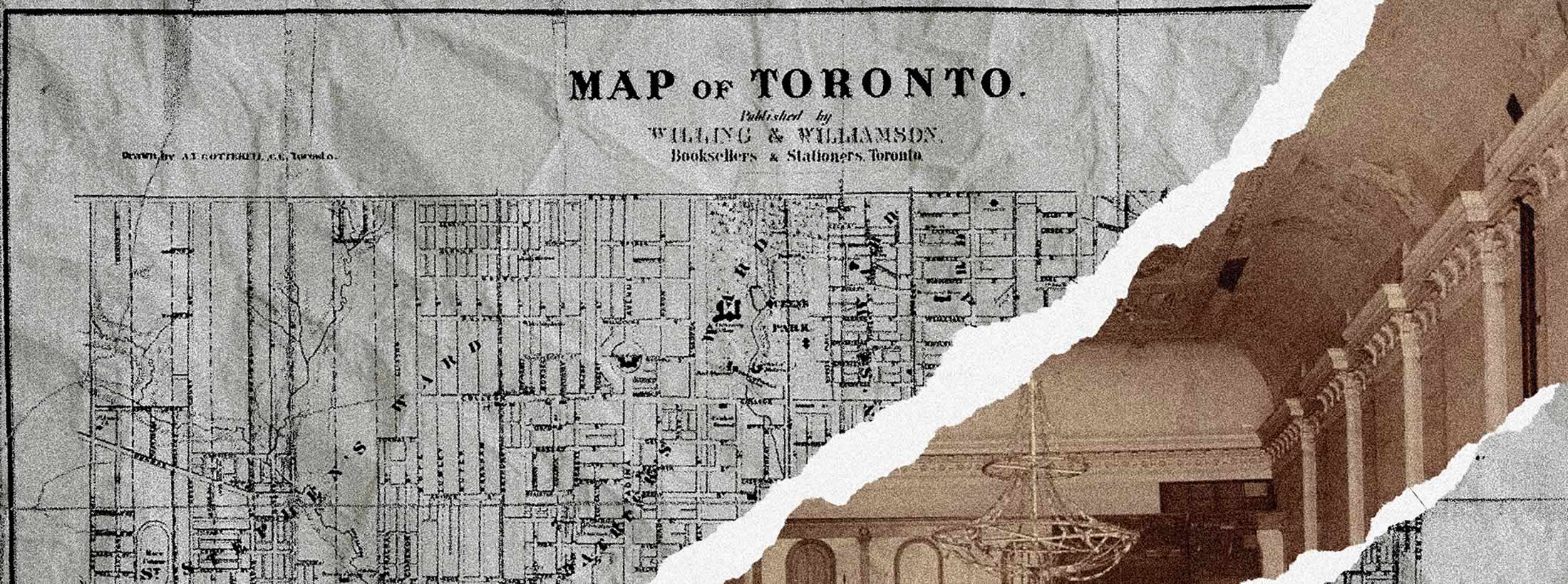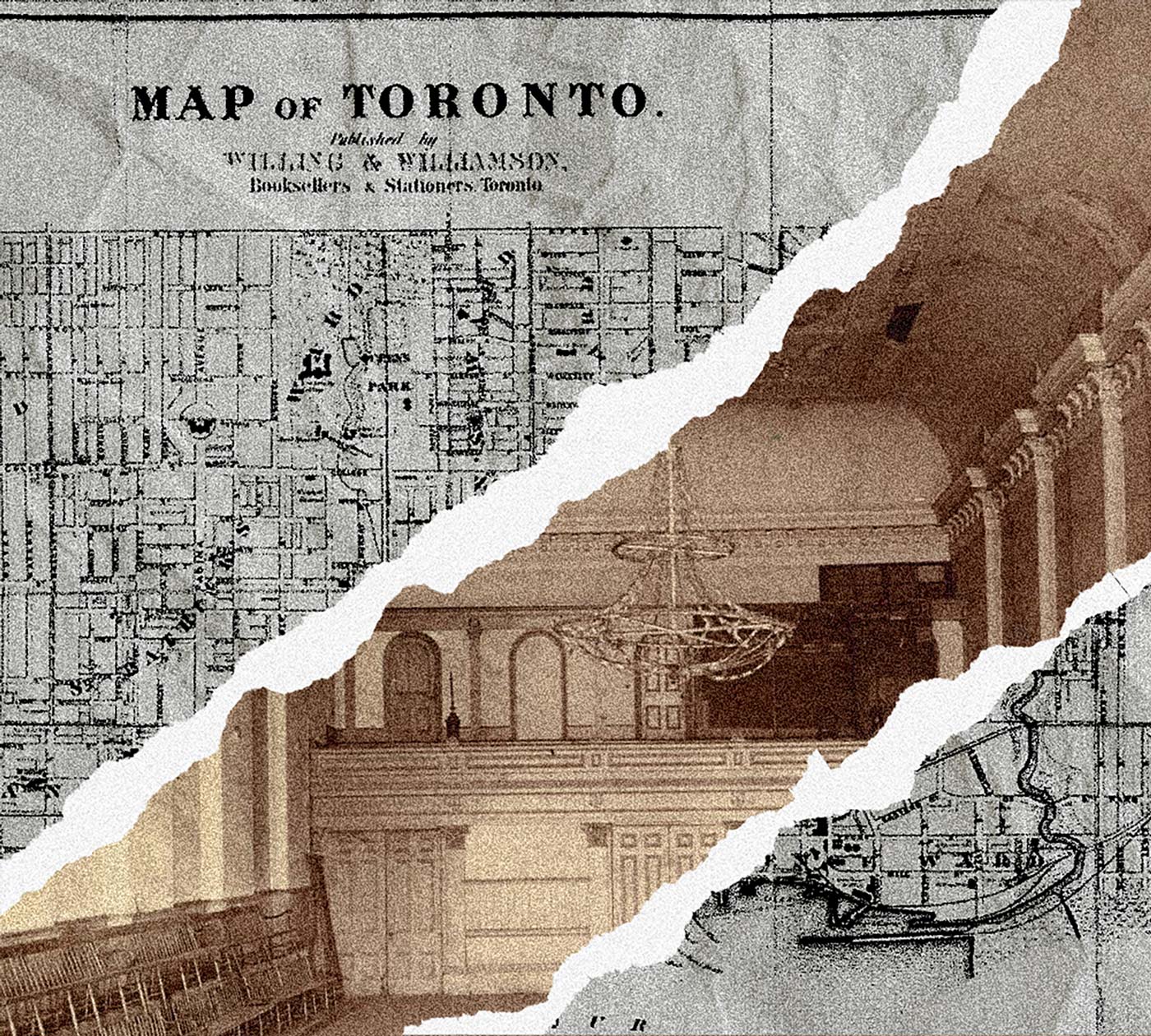

Glossary
Abolitionist
An abolitionist is person who wants to stop or abolish slavery. Today, abolitionist can also refer to someone who wants to abolish other institutions or practices, such as the police abolition movement.
Anti-Slavery Society of Canada
Anti-Slavery Society of Canada was formed in February 1851 to promote the global abolition of slavery and provide relief for refugees in Canada. Its first and only president was Presbyterian minister Michael Willis. The society organized public meetings, including lectures leading up to the North American Convention of Colored Freemen. (Learn more)
Canada West
In 1841, Britain combined the colonies of Upper and Lower Canada into a single colony called the Province of Canada. The colony had two regions: Canada West (formerly Upper Canada), and Canada East (formerly Lower Canada). Canada West became Ontario and Canada East became Quebec. (Source)
Dawn Settlement
Located near Dresden, Ontario, the Dawn Settlement was a safe place for fugitive slaves to live in a community together. It was founded by Josiah Henson, an author, abolitionist, and minister who fled from Maryland, U.S. to Canada. The Dawn Settlement was one of the final destinations of the Underground Railroad. (Learn more)
Emancipation Day
In Canada, August 1st marks the anniversary of when Britian’s Parliament abolished slavery in the British Empire in 1834.
Fugitive Slave
Freedom seeker, refugee.
Fugitive Slave Act
The Fugitive Slave Act was a law passed by the U.S. Congress on September 18, 1850. The Fugitive Slave Act allowed the pursuit and retrieval of slaves in the United States, including Northern States where slavery was abolished. The Fugitive Slave Act increased the risk of Black people being kidnapped and sold into slavery. This resulted in a wave of migration of self-emancipated slaves and free Black people to Canada in the 1850s.
Microaggressions
A comment or action that subtly and often unconsciously or unintentionally expresses a prejudiced attitude toward a member of a marginalized group, such as a racial minority. (Source: Merriam Webster)
The North Star
The North Star was an abolitionist newspaper published from 1847-1851 in Rochester, New York. The newspaper was edited by Frederick Douglass.
Orator
A public speaker, especially one who is eloquent or skilled.
The Provincial Freeman
Published from 1853 – 1860, the Provincial Freeman was a abolitionist newspaper first published in Windsor and later in Toronto and Chatham. Its chief editor was Mary Ann Shadd. Guided by Shadd’s commitment to anti-slavery issues, the paper advocated that “Self-reliance is the true road to independence.” The Provincial Freeman championed temperance, social reform and African-American emigration to British North America. (Learn more)
Refugee Home Society
The Refugee Home Society was founded in 1851 by abolitionists in Ontario and Michigan. It was designed to assist former enslaved people to join a community and remain free. Donations were collected to purchase land and assist refugees, these funds were organized and administered by Henry and Mary Bibb.
Sandwich
Sandwich was a township named in 1972 along the Detroit River. Today, Sandwich is a neighbourhood in Windsor, Ontario.
Seneca Falls Convention
A convention that launched the Women’s suffrage movement held on July 19-20, 1848 in New York. Frederick Douglass was one of the few men present.
Slave
Enslaved.
Slave Owner
Enslaver.
Spoken Word
Poetry intended for performance, and often characterized by rhyme, repetition, improvisation, and word play. Spoken word poems frequently refer to issues of social justice, politics, race, and community. (Source)
The Underground Railroad
A network of secret routes and safe houses established in the United States during the early to mid-19th century. The Underground Railroad was used by slaves to escape to free states such as Canada.
The Underground Railroad also refers to a Soul food restaurant in Toronto that was open from 1969 to 1988 located first on Bloor St., and later on King St. E. (Learn more)
Voice of the Fugitive
The Voice of the Fugitive was Canada’s first Black newspaper, edited by Henry and Mary Bibb. The paper was published from 1851-1853 from Sandwich. The biweekly newspaper was used by fugitive slaves to find their family members, and as a means to communicate with Underground Railroad supporters.
White Supremacy
“White supremacy is an ideology where white people are believed to be superior to nonwhite people. This fallacy is rooted in the same scientific racism and pseudo-science used to justify slavery, imperialism, colonialism, and genocide at various times throughout history. White supremacist ideologies and their followers continue to perpetuate the myth of white racial superiority.” (Learn More: Smithsonian National Museum of African American History and Culture)
Windsor Anti-Slavery Society
The first Anti-Slavery Society in Canada, formed in 1827 by the Black community. Henry Bibb was elected President.
